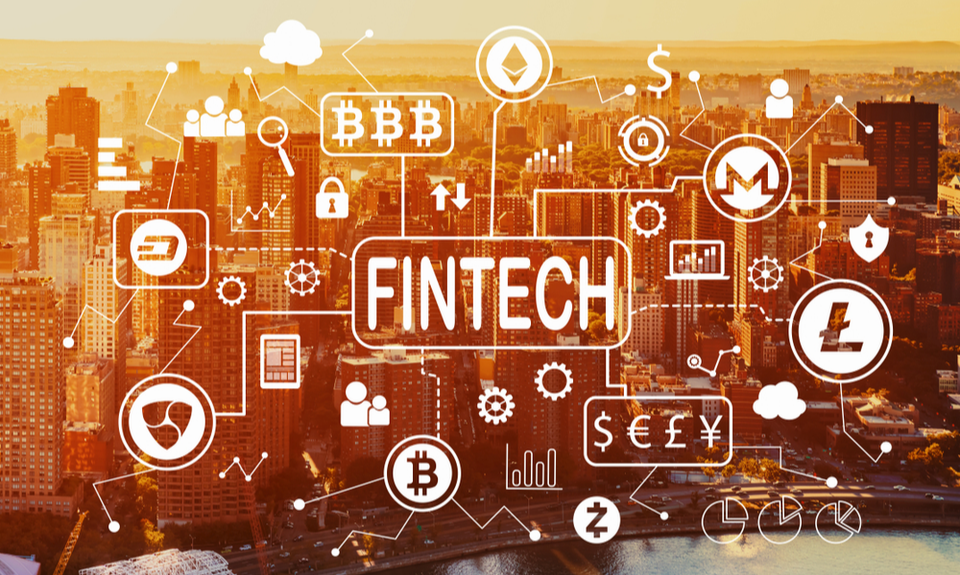Many claims are made for fintech as a potentially disruptive force – but does it really help firms raise funds and provide new opportunities for investors?
Fintech vs. incumbent financial intermediaries
Outside the headline-grabbing realm of cryptocurrencies, fintech is potentially a disruptive force in the way firms raise funds and backers decide where to invest their money. Traditional financial intermediaries, such as banks and venture capital funds, collect funds from investors and decide how to distribute them to firms or individuals requiring financing. Other incumbent intermediaries, such as the highly regulated stock markets, serve the financing needs of large firms by providing standardized information and payment technologies so that investors can select and settle financial transactions securely. Fintech firms are disruptive because they use technology to help start-ups and firms raise funds from different types of investors, including those who can only afford to invest very small amounts. Platforms facilitate project selection by investors. Other types of Fintech, such as initial coin offerings (ICOs), are completely decentralized – blockchains enable firms and investors to interact directly. Compared to traditional financial intermediaries, fintech opens new spaces in which firms and investors can take advantage of technology to raise and invest funds.
What is fintech?
We consider three different types of fintech in our analysis: crowdfunding, fintech lending (including lending-based crowdfunding) and ICOs. There are different forms of crowdfunding depending on the type of claim held by the crowd. In rewards-based crowdfunding, backers receive either an acknowledgement by the project team or the product of the project. More recently, equity crowdfunding has become an important player. The crowd provides funds in return for financial securities, either directly or through a pooled financial vehicle. Backers commit to a long-term investment which is difficult to exit because shares are highly illiquid. Fintech lending expanded from its roots in peer-to-peer (P2P) lending in the 2000s and has grown to represent 11% of the market value of the banking and payments sector. While traditionally, fintech lending enabled individuals to lend directly to startups, small firms or other individuals, the entry of institutional investors into the fintech lending space has changed the market substantially and enabled its rapid growth. ICOs do not rely on platform technology like crowdfunding and fintech lending. They are used to raise funds for very early-stage projects. Investors contribute funds in a recognized cryptocurrency, in return for a utility token (e.g., the right to use a product or service at a later date) or, more rarely, a security token that can take the form of debt of equity. Tokens or coins are listed on a secondary market some months or years after the ICO, meaning that investors can exit their investment.
| Fintech’s disruptive technologies Fintech is disruptive because its technological advantage enables it to provide alternative financing and investing solutions compared to existing financial intermediaries, or even to short-circuit them completely. Fintech draws most of its advantage from three technologies: Platforms: Crowdfunding and fintech lending use platforms to connect investors and firms directly. Platforms are also disruptive as they provide network effects and public visibility. Firms benefit from the higher visibility as a way to promote their project. Investors learn from each other and are able to make more informed investment decisions. Algorithms: Fintech lenders use sophisticated algorithms to create credit scores and set interest rates for loans. Algorithms lead to faster decision making at a lower cost. They can also use alternative non-financial data to assess projects, leading to better decisions. Distributed ledger technology (DLT): DLT is disruptive because it is completely decentralized and it enables direct exchanges between firms or projects and investors. More commonly known as “blockchain”, the technology relies on a secure process of encryption in the form of “blocks” of information, which are held by all participants in the chain and cannot be falsified. |
How do firms benefit from fintech?
Fintech provides new opportunities for innovative entrepreneurial projects to receive funding. Crowdfunding can fill the gap in the financing cycle at the very early stage, before incumbent players are interested. ICOs are used at the seed stage to fund early-stage technology-based projects, especially those relying on DLT. Fintech lending enables small ventures to avoid the problems of limited bank credit supply. In addition, some fintech potentially provides benefits above and beyond funds. Crowdfunding platforms provide ready-made networks which are a promotional tool for the project. The crowd provides useful feedback to the project team which can facilitate optimal product design. ICOs also come with a ready-made network of backers willing to contribute to product improvement.
One problem could be that fintech simply takes business away from existing financial intermediaries. On balance, the evidence suggests that fintech expands funding opportunities overall – financing is not a zero sum game. Startups also benefit from improved financial inclusion due to fintech. Crowdfunding makes funding more accessible to younger entrepreneurs and female-led start-ups. It also provides better access to funding for entrepreneurs away from large urban centers.
Existing academic studies have tried to uncover factors which contribute to successful fundraising through fintech. Technology is important. In the case of ICOs, reliance on standard technology such as Ethereum is associated with higher amounts raised. Platform design in crowdfunding affects success too, with more funds raised when platforms set prices rather than letting auctions decide outcomes. While we might expect the characteristics of the products and projects themselves to be important for successful fundraising, it is perhaps surprising to learn that even in the fintech space, the people behind the projects are also paramount – investors prefer to fund projects led by teams identified as loyal and trustworthy.
What are the new opportunities for investors?
Fintech provides the opportunity for investments in new asset classes or securities that were previously restricted to institutional or professional investors. Traditional financing usually has high barriers to entry, in the form of elevated transaction costs and large minimum tickets which exclude all but the most wealthy. This implies that in the past, small investors have missed out on Silicon Valley type investments where the returns are potentially high. Fintech enables small investors to access this market and minimum investments are very low and, in some technologies such as ICOs, fees are negligible. However, fintech is not a cure all – investments in fintech lending and crowdfunding are very illiquid and investors’ money is tied up in the project for long periods with no exit possibilities. ICOs are listed on secondary markets some time after their launch, so investors are more likely to be able to exit, although once the coin is listed, transaction costs are comparable to those in traditional finance. Obviously, the reduced transaction costs from disintermediated finance also comes with a significant cost: investors now need to invest significant amounts of time in collecting and screening relevant information. For equity crowdfunding for instance, this requires a certain level of financial literacy.
The main claims about new opportunities puts forward the argument that access to finance is improved for retail investors. However, institutional investors are moving in on these lucrative markets. Fintech lending investors were initially almost all individuals. Now, the bulk of fintech lending investors on the largest platforms are hedge funds and venture capitalists. ICO investors are also a mix of retail investors alongside institutional investors, which often benefit from preferential conditions at the pre-sale stage of the ICO. But retail investors’ motives are not only financial. Fintech provides an opportunity to invest in projects with a prosocial goal, or, in the case of ICOs, in a fully disintermediated environment. But do investors also make money? Most fintech investments are so recent that we do not have sufficient evidence to provide a definitive answer, although the limited information available tends to show encouraging signs for crowdfunding and ICOs. The confusion of monetary and non-monetary goals also complicates the question. This is clearly an area where substantial evidence is needed.
A crucial issue for retail investors in fintech is the quality of information available to enable them to assess the project. At the early start-up stage, projects are typically very opaque and there is little provision of standardized information. While platforms act to a certain extent as gatekeepers in crowdfunding and platform lending, there are no such safeguards for ICOs. The risk of scams seems inherent in ICOs, suggesting that investors should expend time and effort to understand the project. However, they seem to take a lot on trust – one study found that only 31% of investors actually read project documents in any detail. Investor protection is still somewhat weak, leaving investors vulnerable in spite of the many opportunities for investment in good projects.
What of the future?
A key issue in the future will be the regulation of fintech. Current regulatory frameworks do not fit the fintech world easily. If they do, overregulation risks stifling initiatives. For example, equity crowdfunding could be regulated by analogy with stock markets. However, this would risk shutting out the very firms and investors fintech is supposed to help. Another difficulty is investor protection when fintech products do not provide a recognizable financial claim on the firm. ICOs and reward-based crowdfunding both provide utility in the form of a future product or service. This means some forms of ICO and crowdfunding fall under consumer protection legislation rather than financial regulation. Information appears to be the key. Today, the onus is on investors to research projects so they can seek out all the available information and analyze it. Regulation could shift the obligation towards projects or platforms, ensuring they provide properly structured, analytical and standardized information. The technologies themselves also afford opportunities for investor protection – for example, DLT allows for smart contracts, which only unlock funds when pre-defined milestones are reached.
On balance, it seems that fintech has improved access to finance for start-ups and enlarged the investor pool, although regulatory challenges remain. We are now starting to observe big players enter the market. For example, Facebook launched Libra through an ICO; Atari attempted to revive its fortunes with an ICO; Société Générale has issued a blockchain bond; Nike and General Electric have launched reward-based crowdfunding initiatives. In the future, we are likely to observe more and more interactions between traditional and fintech financing.
Bollaert, H., Lopez-de-Silanes, F., & Schwienbacher, A. (2021). Fintech and access to finance. Journal of Corporate Finance, 68, 101941. https://doi.org/10.1016/j.jcorpfin.2021.101941






